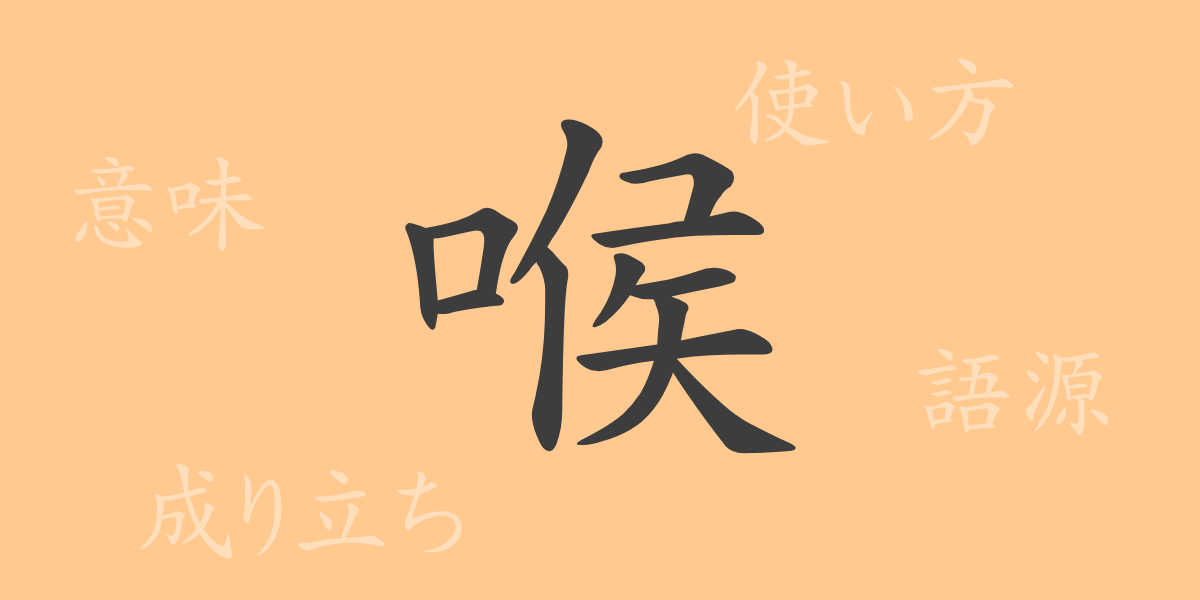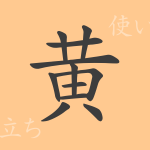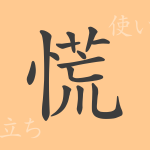Japanese language includes numerous words that symbolize emotions and actions. Among them, the kanji “喉(のど)” is deeply rooted in our lives and has a wide range of uses, from medical contexts to figurative expressions. In this article, we will focus on the kanji “喉(のど)” and delve into its origin, modern usage, and more. Let’s explore the charm of “喉(のど)” as a commonly used kanji from various angles.
Origin of 喉(のど) (Etymology)
The kanji “喉(のど)” has been used since ancient China to refer to a part of the human body. It consists of the “口(くち)” radical, meaning “mouth,” and “欠(けつ),” derived from “云(うん),” which indicates a gaping mouth emitting sound. This symbolizes the throat as the organ that produces voice. From ancient times, the throat has been recognized as a crucial part of human communication.
Meaning and Usage of 喉(のど)
The kanji “喉(のど)” literally refers to “the front part of the neck, through which food and drink pass,” according to medical definitions. Figuratively, it is also used to express “hitting the key point or core of something” or “desiring something intensely.” For instance, the phrase “喉から手が出るほど欲しい(のどからてがでるほどほしい)” vividly depicts the feeling of strongly wanting something.
Readings, Stroke Count, and Radical of 喉(のど)
The kanji “喉(のど)” has several readings and important characteristics.
- Readings: On-yomi (Chinese reading) is “コウ(こう),” and kun-yomi (Japanese reading) is “のど(のど).”
- Stroke count: “喉(のど)” has a total of 10 strokes.
- Radical: The radical is “口(くちへん)” (mouth).
Idioms, Phrases, and Proverbs Using 喉(のど)
There are numerous idioms, phrases, and proverbs in Japanese that include the kanji “喉(のど).” These are commonly used in daily conversation and literary works, showcasing the richness of the Japanese language. For example, “喉が渇く(のどがかわく)” can mean not only literal thirst but also “longing for something.” The expression “喉に刃物を突きつけられる(のどにはものをつきつけられる)” describes a situation of extreme danger or pressure. Additionally, the proverb “喉元過ぎれば熱さを忘れる(のどもとすぎればあつさをわすれる)” reflects human nature, where people forget their past sufferings once they are over.
Conclusion on 喉(のど)
Through this article, we have deepened our understanding of the various meanings and uses of the kanji “喉(のど),” as well as its deep cultural background in the Japanese language. From medical perspectives to figurative expressions in daily life, the throat plays a vital role. The kanji “喉(のど)” encompasses not only the physical characteristics of humans but also psychological and cultural aspects. Recognizing the richness of the Japanese language through the kanji “喉(のど)” will lead to more discoveries and learning opportunities in the future.

























